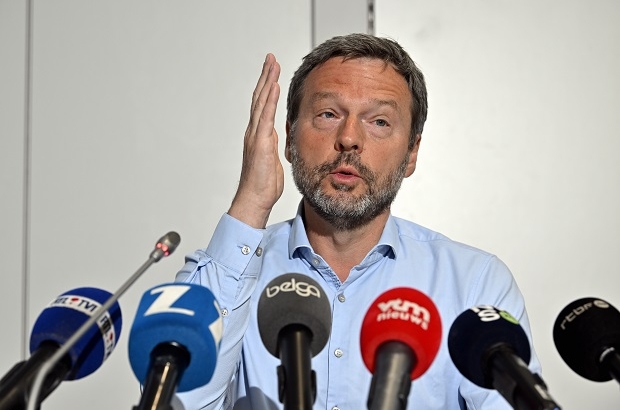- Daily & Weekly newsletters
- Buy & download The Bulletin
- Comment on our articles
‘Urgent need for improvement’: National Bank calls for budget measures, fast
The National Bank of Belgium (NBB) announced an urgent need for a path of fiscal improvement in its recent spring forecast, warning there are “no buffers left” and pointing out that “in a recession, finances will derail.”
While the NBB does not expect a recession for now, it’s forecasting a sharp slowdown in the economy, which is currently going through a period of zero growth that the NBB hopes will begin to turn around from the end of the year.
“The war in Ukraine and the severe pandemic-related lockdowns in China have again disrupted global supply chains and prices of various inputs, including energy, have risen sharply,” the NBB forecast reads.
“The energy shock is a clear impoverishment for the Belgian economy, which nevertheless remains resilient.”
While Belgium's economic growth will likely reach 2.4% this year, the NBB warns that this is something of a statistical deception that has more to do with the strong spillover from last year's high growth rate (6.1%).
Finishing out this year in a weak position conversely sets Belgium up for low growth in the next one (currently expected to hover around 1.5%) – and none of this takes into account potential unpredictable happenings in the energy market in the wake of the continued war in Ukraine.
Looking to the US economy for insight
The economic cycle in Europe is six months behind that of the US, where more and more analysts are citing a recession.
Energy prices are having a massive impact in both regions, along with inflation and a purchasing power crisis.
The NBB expects inflation in Belgium to have peaked at 8.2% and predicts that next year it will fall back to 2.6%, slightly higher than earlier predictions.
But the rise of core inflation is lasting longer than first expected and is why the European Central Bank (ECB) has tightened monetary policy and embarked on a path of interest rate hikes.
Belgium’s budget deficit is second-worst in Europe
NBB governor Pierre Wunsch (pictured) told De Standaard that he is most concerned about Belgium's budget deficit, which was supposed to reach 4.5% of the Belgian economy this year but is worsening and may now reach 5% in 2024.
The deficit is supposed to improve structurally by 0.6% annually, making Belgium the second worst country in Europe when it comes to meeting this goal.
Wunsch warns that if a recession does hit, as appears to be happening in the US, the budget deficit will rise to 7%: “a complete derailment.”
He urged the government to start working on structural budget measures now. While in the past, this only happened under pressure from the financial markets, Wunsch says Belgium cannot afford to wait so long.
“There is no longer a margin – the little margin that was available was used during the Covid-19 crisis,” Wunsch said.
While both central banks and governments propped up the economy back then, countries shouldn’t expect the same moving forward: central banks are tightening monetary policy and making interest rates more expensive in order to fight inflation.
“If governments continue to pile up deficits, which is inflationary, the central bank will have to tighten money policy even more,” Wunsch warned.
Although the spring forecast was positive when it came to Belgium’s strong labour market, it ended on a note of caution that the outlook overall “remains surrounded by considerable uncertainty,” largely due to the war in Ukraine.
“Unexpected geopolitical developments could continue to strongly influence both the growth and inflation outlooks,” the NBB said.
Photo: Pierre Wunsch © Belga/Eric Lalmand



















